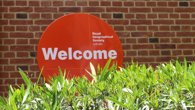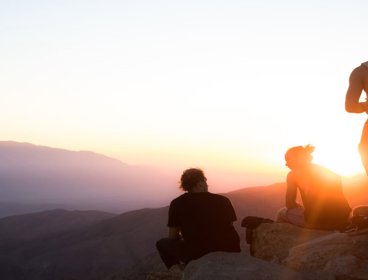Fieldwork should be planned and conducted in such a way as to be as inclusive and accessible as possible, considering the wellbeing of students and staff, including their mental and physical health, and all other protected characteristics.
Fieldwork options for taught undergraduate fieldwork should be fair and appropriate and, to the extent possible, overcome possible costs and other barriers that might impact a studentās ability to participate (e.g. through caring responsibilities).
An Equality Impact Assessment should be undertaken on all fieldwork ā with attention to both students and staff ā and the results published to students. Programmes should aim to iteratively develop their field offerings taking into account the outcomes of this audit.
The following list of online resources< is dynamic. If you know of other relevant resources you think we should be sharing, weād be happy to hear from you at rhed@rgs.org. The Society does not accept responsibility for the content of the external sites. Inclusion on this list does not equate to an endorsement of any content or organisation. Please contact the external site for questions regarding individual resources.
Ģż
Planning accessible fieldwork
An introduction to safe fieldwork
Eric Jensen and Charles Laurie (UK)
Videos offering advice on recognising and managing physical and mental threats during research.
Ģż
Policy on equality, diversity and inclusion for field classes
University of Sheffield (UK)
A policy to ensure that all students and teaching staff are able, and feel safe, to participate fully in compulsory and optional field classes offered by the Department of Geography.
Ģż
10 ways to make fieldwork more inclusive and accessible
CULTIVATE project
A booklet designed as a short guide to help those organising fieldwork to think about, plan and deliver inclusive and accessible field work.
Ģż
Toilet stops in the field: An educational primer and recommended best practices for field-based teaching
University of Birmingham (UK)
A document intended to educate staff and students about toilet stops and menstruation in the field.
Ģż
Menstruation in the field
AntarcticGlaciers.org ā Dr Bethan Davies and Dr Becky McCerery
A resource for individuals, as well as for field leaders who wish to better support colleagues and students in the field.
Ģż
More Inclusive Fieldwork ā using virtual fieldwork
University of Worchester, Bangor University, University of Salford Mancheser
This project explores and provides information on the nature of virtual fieldwork and how virtual fieldwork can make in-person field experiences in the environmental sciences more inclusive.
Ģż
Resources for virtual fieldwork
View the Societyās page of resources for virtual fieldwork and experiential learning.
Ģż
Disability and fieldwork
Fieldwork and disability: an overview for an inclusive experience
Geological Magazine (UK)
A summary of methods to reduce barriers to inclusion and equal opportunity.
Ģż
Leveling the field
University of Florida (USA)
The development of an accessible geoscience field course.
Ģż
Six simple steps to make fieldwork more accessible and inclusive
Anya Lawrence (UK)
A student perspective on accessible fieldwork.
Ģż
Accessibility and fieldwork in the time of coronavirus
Richard J. Sima/EOS (USA)
A discussion of the impact of COVID-19 on field accessibility.
Ģż
Creating spaces for geoscientists with disabilities to thrive
Anita M. Marshall/EOS (USA)
Flexible fieldwork options and thoughtful recruitment.
Ģż
Itās time to change the geosciencesā outdated, exclusionary, and ableist field requirements
Rebecca Dzombak/Sister STEM (USA)
An article on using the pandemic to make long-term changes to field inclusivity.
Ģż
Field trips for all: Accessibility and inclusivity for students with disabilities
American Geosciences InstituteĢż(USA)
Recorded webinar on inclusive field practices.
Ģż
Guide for teaching and learning in archaeology
AdvanceHE (UK)
Good practice guidelines for including disabled students in fieldwork training.
Ģż
Confronting barriers to inclusion - Opening the gate to accessible fieldwork
The Geological SocietyĢż(UK)
Recorded event including discussion of accessible fieldwork, and the broader accessibility of geoscience education.
Ģż
Protected characteristics
Preventing harassment in fieldwork situations
University of Washington (USA)
Report from the University of Washingtonās Respect and Equality in Fieldwork (REIF) 2017 Committee.
Ģż
The Women Doing Fieldwork Network (WDFN)
Network which aims to highlight problem of gender-based harassment in the field, support victims and encourage institutions to improve safeguarding.
Ģż
The challenges of fieldwork for LGBTQ+ geoscientists
Alison N. OlcottĢżand Matthew R. Downen/EOS (USA)
Discussion of the results of a survey of LGBTQ+ scientists.
Ģż
Pride in the field
University of LeedsĢż(UK)
A project promoting inclusive fieldwork spaces for LGBTQ+ workers in research, policy and practice.
See also an associated series of articles onĢżGeography Directions.
Ģż
In fieldwork, other humans pose as much risk to LGBTQIA+ people as the elements
Danny HaelewatersĢżandĢżAdriana Romero-Olivares/Massive ScienceĢż(USA)
STEM-based discussion of threats and proposal of possible strategies.
Ģż
Lesbian, gay, bisexual and transgender foreign travel advice
Foreign, Commonwealth and Development OfficeĢż(UK)
UK Government advice for overseas travel.
Ģż
Map of sexual orientation laws
International Lesbian, Gay, Bisexual, Trans and Intersex AssociationĢż(Switzerland)
World map showing sexual orientation laws by country, available inĢżseveral languages.
Ģż
Religious and cultural observance for teaching, learning, assessment and research
University of Plymouth (UK)
Guidance for understanding and supporting religious and cultural observances, including a section on fieldwork.
Ģż
An inclusive risk assessment tool for travel and fieldwork
Cardiff University (UK)
Suggested approaches to considering hazards and appropriate mitigations that particularly affect protected characteristics, including the need to consider how laws and attitudes, such as those towards women, or LGBT+ people, may affect the safety of participants.
Ģż
Racism and harassment are common in field research ā scientists are speaking up
Giuliana Viglione/Nature (USA)
Researchers call on universities to offer inclusive policies that make fieldwork safer.
Ģż
The BAME women making the outdoors more inclusive
The Guardian (UK)
The stories of BAME women who are exploring the British contryside, despite longstanding barriers to participation.
Ģż
Other related resources
New to teaching geography
A practical guide for higher education teaching assistants, teaching fellows and demonstrators.
Ģż
Geography Directions
Geography Directions has published a series of articles on fieldwork and field-related issues.
Ģż
Selected readings
Access and inclusion
- Atchison, C.L., Parker, W.G., Riggs, N.R., Semken, S., and Whitmeyer, S.J., (2019) Accessibility and inclusion in the field: A field guide for central Arizona and Petrified Forest National Park, In Pearthree, P.A., ed., GSA 2019 Phoenix Field Guides: Geological Society of America Field Guide 55, 1ā23. .
- Batty, L. (2020) Mental health and fieldwork. .
- Brogan, C. (2018) Imperial geologist tackles field trip mental health. .
- Carabajal, I.G., Marshall, A.M., & Atchison, C.L. (2017). A synthesis of access and inclusion in geoscience education literature. Journal of Geoscience Education, 65, pp. 531-541. .
- Giles, S., Jackson, C. & Stephen, N. (2020) Barriers to fieldwork in undergraduate geoscience degrees, Nat Rev Earth Environ, 1, pp. 77ā78. .
- Gilley, B.H., Atchison, C.L., Feig, A. and Stokes, A. (2015). Impact of inclusive field trips. Nature Geoscience, 8, 579-580. .
- Hammersley, H., Bilous, R., James, S., Trau, A. and Suchet-Pearson, S. (2014) Challenging ideals of reciprocity in undergraduate teaching: The unexpected benefits of unpredictable cross-cultural fieldwork. Journal of Geography in Higher Education, 38(2), pp. 208ā218. .
- Hughes, A. (2022). Unsettling fieldwork: Reflections of Whiteness and antiāracist practice in the pedagogies of fieldwork. Area, 54(4), pp. 558-562. .
- Lawrence, A. and Dowey, N. (2021). Six simple steps towards making GEES fieldwork more accessible and inclusive. Area. .
Ģż
Disability
- Atchison, C.L. (2009) Innovative, alternative field opportunities for students with mobility impairments. GSA Abstract with Programs, 41(7), p. 384
- Atchison, C.L. and Feig, A.D. (2011) Theoretical perspectives on constructing experience through alternative field-based learning environments for students with mobility impairments. GSA Special Papers, 474, pp. 11ā21. .
- Atchison, C.L. and Gilley, B.H. (2015) Geology for everyone: Making the field accessible. Earth, September, pp. 24ā33
- Atchison, C. L., Marshall, A.M, & and Collins, T., (2019) A multiple case study of inclusive learning communities enabling active participation in geoscience field courses for students with physical disabilities. Journal of Geoscience Ed. .
- Batty, L. (2020) Mental health and fieldwork. .
- Brewer, J. (2010) STEM field education: Increasing interest among students with disabilities through geoscience education. Geological Society of America Abstract with Programmes, 42(5), p. 663
- Brogan, C. (2018) Imperial geologist tackles field trip mental health. .
- Clark, G. (2007) Going Beyond our Limits: Issues for Able and Disabled Students, Journal of Geography in Higher Education, 31(1), pp. 211-218. .
- Clark, H. and Jones, J. (2011) The use of a fieldwork audit to anticipate barriers to fieldwork for disabled students, Planet, 24:1, pp. 42-49. .
- Dzombak, R. (2020) Itās time to change the geosciencesā outdated, exclusionary, and ableist field requirements. Sister. .
- Feig, A., Atchison, C.L., Stokes, A., & Gilley, B. (2019). Achieving inclusive field-based education: Results and recommendations from an accessible geoscience field trip. Journal of the Scholarship of Teaching and Learning, 19(2), pp. 66-87.
- Hall, T., Healey, M. and Harrison, M. (2004) Fieldwork and disabled students: discourses of exclusion and inclusion, Journal of Geography in Higher Education, 28(2), pp. 255-280. .
- Hendricks, J.E., Atchison, C.L., & Feig, A.D. (2017). Effective use of personal assistants for students with disabilities: Lessons learned from the 2014 accessible geoscience field trip. Journal of Geoscience Education, 65(1), 72-80. .
- John, C.M., Khan, S.B. (2018) Mental health in the field, Nature Geosci, 11, pp. 618ā620. .
-
Kingsbury, C. G., Sibert, E. C., Killingback, Z., & Atchison, C. L. (2020). "Nothing about us without us:" The perspectives of autistic geoscientists on inclusive instructional practices in geoscience education. Journal of Geoscience Education, 68(4), 302-310.Ģż .
- Mol, L. and Atchison, C. (2019)ĢżImage is everything: educator awareness of perceived barriers for students with physical disabilities in geoscience degree programs, Journal of Geography in Higher Education, 43(4), pp. 544-567. .
- Stokes, A., Feig, A.D., Atchison, C.L., Gilley, B. (2019) Making geoscience fieldwork inclusive and accessible for students with disabilities, Geosphere, 15(6), pp. 1809ā1825. .
- Tucker, F. and Horton, J. (2019) 'The show must go on!ā Fieldwork, mental health and wellbeing in Geography, Earth and Environmental Sciences, Area, 51(1), pp. 84-93. .
- Whitmeyer, S.J., Atchison, C. and Collins, T.D. (2020) Using mobile technologies to enhance accessibility and inclusion in field-based learning. GSA Today, 30. .
Ģż
Protected characteristics
- Demery, A.J.C., Pipkin, M.A. (2021) Safe fieldwork strategies for at-risk individuals, their supervisors and institutions. Nat Ecol Evol 5, 5ā9. .
- Fry, L.J. (2013) Gender and dangers inherent in fieldwork, Gender and Behaviour, 11(2), pp. 5474-5485(12).
- Greene, S.E. et al. (2021) Safety and Belonging in the Field: A Checklist for Educators, EarthArXiv. .
-
Greene, S., Ashley, K., Dunne, E., Edgar, K., Giles, S., & Hanson, E. (2020). Toilet stops in the field: An educational primer and recommended best practices for field-based teaching.
- KloĆ ST. (2017) Sexual(ized) harassment and ethnographic fieldwork: A silenced aspect of social research, Ethnography, 18(3):396-414. .
-
Maguire, S. (1998). Gender differences in attitudes to undergraduate fieldwork. Area, 30(3), 207-214. .
- Nelson, R.G., Rutherford, J.N., Hinde, K. and Clancy, K.B.H. (2017)ĢżSignaling Safety: Characterizing Fieldwork Experiences and Their Implications for Career Trajectories, American Anthropologist, 119, pp. 710-722. .
- Pickrell, J. (2020) Scientists push against barriers to diversity in the field sciences. Science: Careers, 11 March. .
- Porter, B.A. and Schanzel, H.A. (2018) Femininities in the Field: Tourism and Transdisciplinary Research. Bristol: Channel View Publications.
- Rinkus, M.A., Kelly, J.R., Wright, W., Medina, L. and Dobson, T. (2018) Gendered Considerations for Safety in Conservation Fieldwork, Society & Natural Resources, 31:12, pp. 1419-1426. .
- Townsend-Bell, E. (2009) Being True and Being You: Race, Gender, Class, and the Fieldwork Experience. PS: Political Science and Politics, 42(2), pp. 311-314.
Ģż
The resources on this page were collated as part of the Enabling equitable cultures of knowledge and practice in physical geography and environmental sciences, funded by the Natural Environment Research Council (NERC).
Ģż




